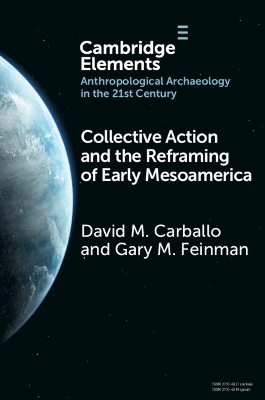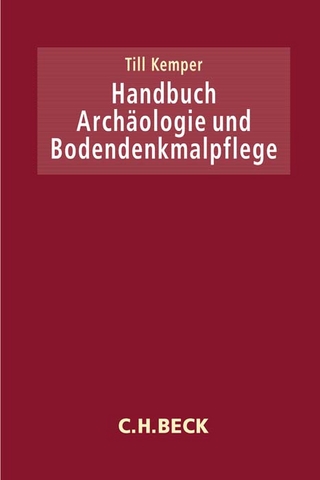
Collective Action and the Reframing of Early Mesoamerica
Seiten
2024
Cambridge University Press (Verlag)
978-1-009-33870-7 (ISBN)
Cambridge University Press (Verlag)
978-1-009-33870-7 (ISBN)
This Element reviews approaches to collective action drawing on perspectives from across the globe and case studies from Mesoamerica. It highlights how institutions and systems of governance matter, vary over space and time, and can oscillate between more pluralistic and more autocratic forms within the same society, culture, or polity.
In considering the long trajectory of human societies, researchers have too often favored models of despotic control by the few or structural models that fail to grant agency to those with less power in shaping history. Recent scholarship demonstrates such models to be not only limiting but also empirically inaccurate. This Element reviews archaeological approaches to collective action drawing on theoretical perspectives from across the globe and case studies from prehispanic Mesoamerica. It highlights how institutions and systems of governance matter, vary over space and time, and can oscillate between more pluralistic and more autocratic forms within the same society, culture, or polity. The historical coverage examines resource dilemmas and ways of mediating them, how ritual and religion can foster both social solidarity and hierarchy, the political financing of institutions and variability in forms of governance, and lessons drawn to inform the building of more resilient communities in the present.
In considering the long trajectory of human societies, researchers have too often favored models of despotic control by the few or structural models that fail to grant agency to those with less power in shaping history. Recent scholarship demonstrates such models to be not only limiting but also empirically inaccurate. This Element reviews archaeological approaches to collective action drawing on theoretical perspectives from across the globe and case studies from prehispanic Mesoamerica. It highlights how institutions and systems of governance matter, vary over space and time, and can oscillate between more pluralistic and more autocratic forms within the same society, culture, or polity. The historical coverage examines resource dilemmas and ways of mediating them, how ritual and religion can foster both social solidarity and hierarchy, the political financing of institutions and variability in forms of governance, and lessons drawn to inform the building of more resilient communities in the present.
1. Working Together: Theoretical Approaches and Historical Cases of Collective Action; 2. Mesoamerica as a Region and Assemblage of Cultural Institutions; 3. Collective Action and Governance in the Mesoamerican Archaeological Record; 4. Epilogue: What Can We Learn from Early Mesoamerica?; References.
| Erscheinungsdatum | 13.02.2024 |
|---|---|
| Reihe/Serie | Elements in Anthropological Archaeology in the 21st Century |
| Zusatzinfo | Worked examples or Exercises |
| Verlagsort | Cambridge |
| Sprache | englisch |
| Maße | 150 x 230 mm |
| Gewicht | 150 g |
| Themenwelt | Geisteswissenschaften ► Archäologie |
| ISBN-10 | 1-009-33870-6 / 1009338706 |
| ISBN-13 | 978-1-009-33870-7 / 9781009338707 |
| Zustand | Neuware |
| Informationen gemäß Produktsicherheitsverordnung (GPSR) | |
| Haben Sie eine Frage zum Produkt? |
Mehr entdecken
aus dem Bereich
aus dem Bereich
maternal health science and the reproduction of harm
Buch | Softcover (2024)
University of California Press (Verlag)
37,40 €
Holocaust heritage, noncitizen futures, and black power in Berlin
Buch | Softcover (2022)
University of California Press (Verlag)
37,40 €


